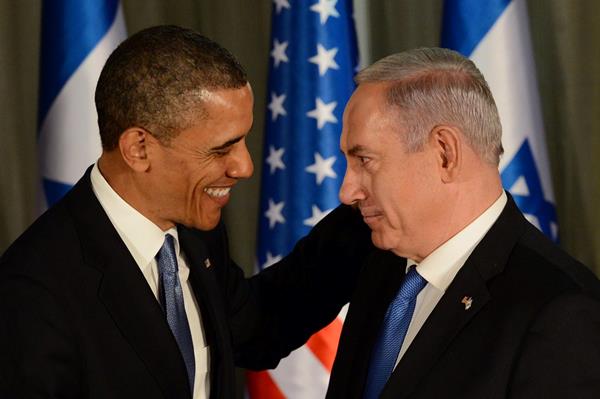While Obama’s speech was biased, antiquated and problematic, it did include a handful of statements, ideas and words that provide even the slightest bit of hope.
By Moriel Rothman

So. Huh. President Barack Obama just finished his speech here in Jerusalem, a few blocks away from where I am sitting. I want to get some thoughts out, initial reactions before I delve into others’ analyses, interpretations, et cetera. The speech was, as we all knew that it would be, filled with strategic gloop designed to make Israelis feel good. Most of it was vague, theoretical, and not substantially or symbolically different than the massive Israeli and American flags pasted all over the stage (and the city). Fine. It’s a strategy, and from my initial read of the media and conversations overheard on the street, a strategy that seems to be working: Israelis are feeling good about this trip and about Obama. There were two points that I noticed in which the gloop did get specific enough to be harmful (and I imagine I missed a few more like this- again, this is a First Reaction piece): (1) he reiterated and defended US veto of all Palestinian initiatives in the UN. To be expected, but still not good. (2) This might be the low point: He explicitly called for Palestinians to recognize Israel’s right to exist as a Jewish State. Even though the US has articulated similar positions in the past, that rearticulation did not need to happen today, and it is a dangerous pre-condition and just a bad thing in many other ways (I’ll explain that more in another post). I thought that he’d actually brilliantly skirted this one when he asserted earlier in the speech that Israel had the right to demand that Hamas renounce violence and recognize its right to exist. Not its right to exist as a Jewish State. So, I’m not sure about this point.
But.
I have say that I was very surprised, positively, by the speech. I knew it was going to be filled with gloop. I did not know that it would include a handful of statements, ideas and words that would give me tiny, teensy glimmers of, well, hope?
Those statements, ideas and words, in list form:
(1) He said the words “Independent Palestine” twice.
(2) He called the IDF a “Foreign Army” in terms of its actions in Palestine.
(3) He condemned settler violence and the failure to punish it. He also spoke out against destruction of farmers’ land, restriction of students’ movement and the eviction of families.
(4) He gave credit to and noted the many young Palestinians who have rejected violence.
(5) And he said the words (a) “Occupation” (which was a pleasant surprise and made it such that he passed my Haiku Test) and (b) “Expulsion” (which was actually sort of a shock).
So, while the speech was of course biased, antiquated, problematic, gloop-filled, and everything else that my radical colleagues predicted it would be and will analyze it as having been, these five points are worth considering. And worth emphasizing and repeating, because we have the opportuntiy, right now, to construct the meaning of this speech, as much as any political pundits or newscasters do. So: The President of the United States said that “Neither Occupation nor Expulsion is the answer.” Neither Occupation nor Expulsion is the answer.
Neither Occupation nor Expulsion is the answer.
Moriel Rothman is an American-Israeli writer and activist. He is based in Jerusalem and blogs independently at www.TheLefternWall.com.
Related:
Cracks in the wall: A glimmer of hope for Israel-Palestine
Obama’s speech: Israel’s Left and Right can be happy, and the occupation is here to stay
Obama compares Israeli occupation to racial discrimination in U.S.
Obama’s speech: Did the audience hear it?
